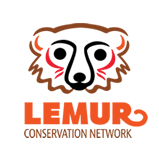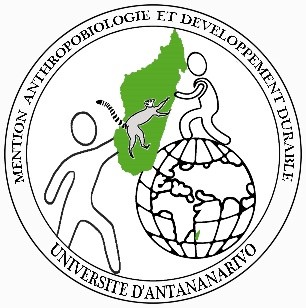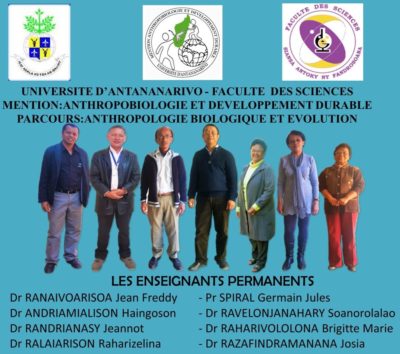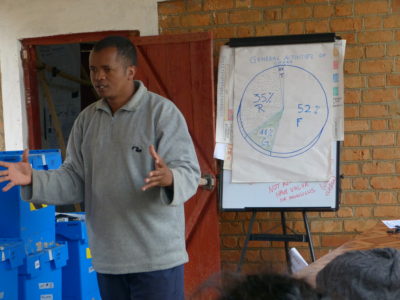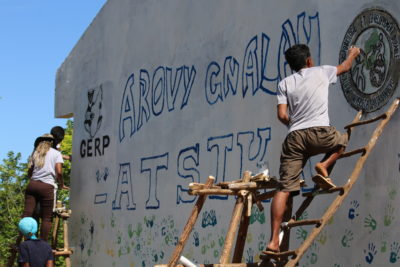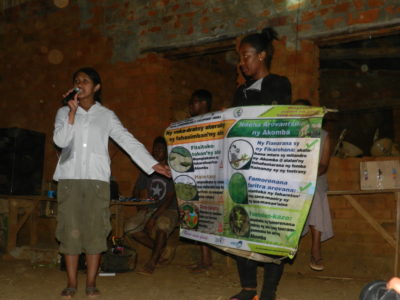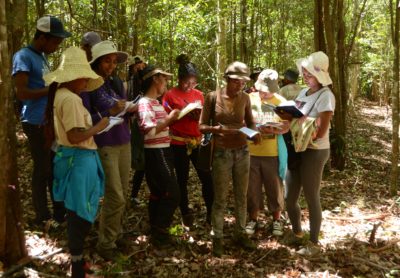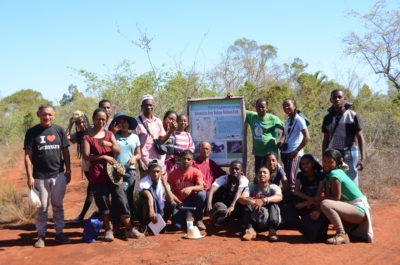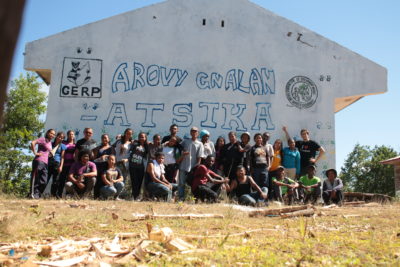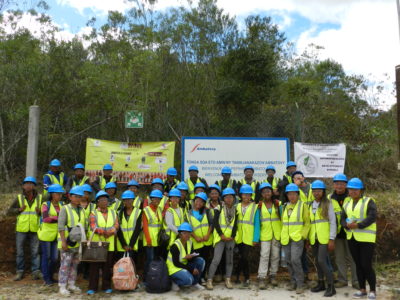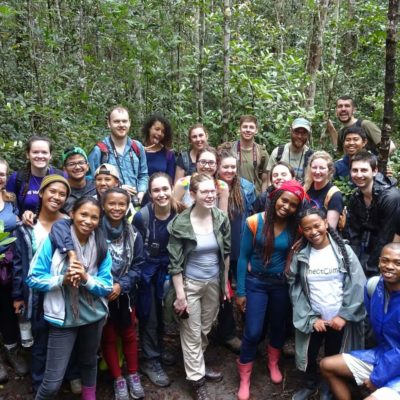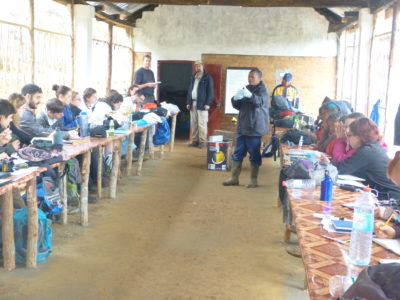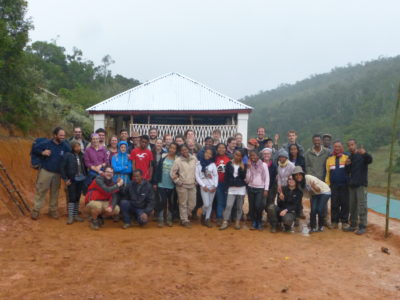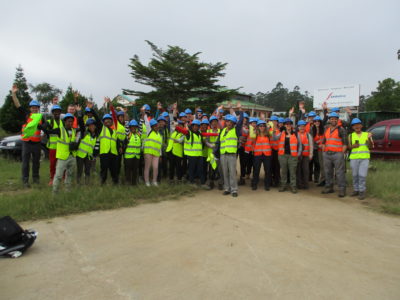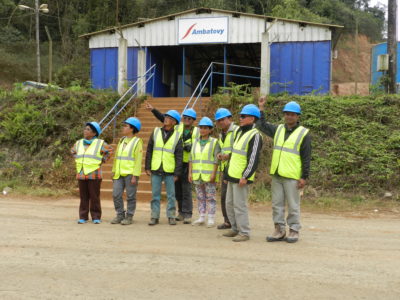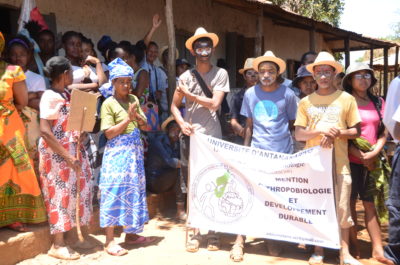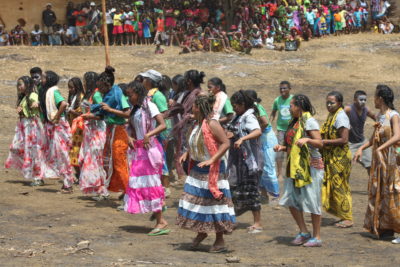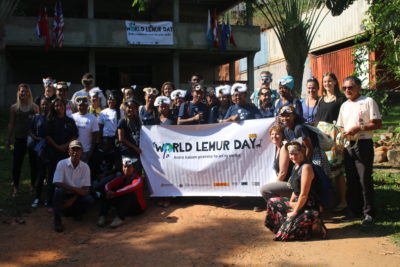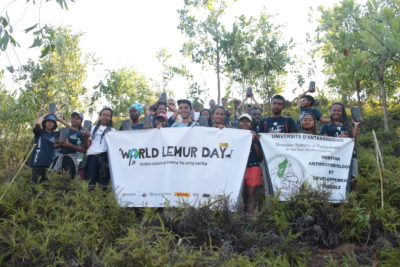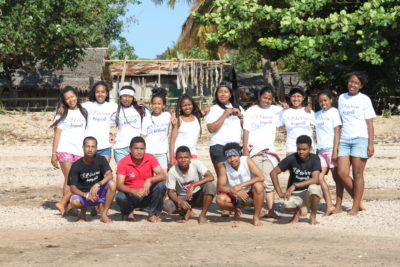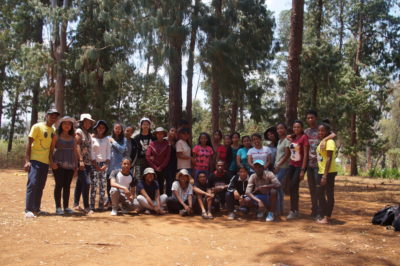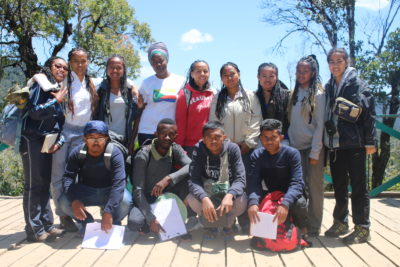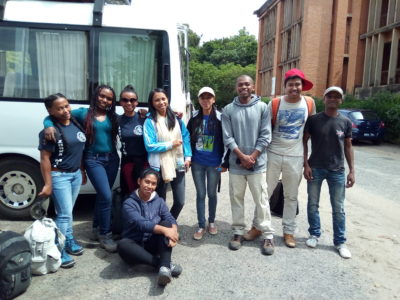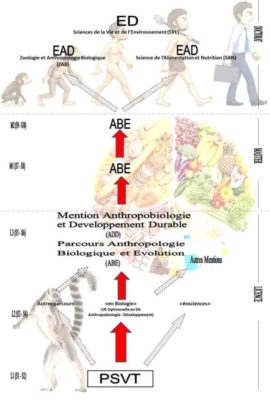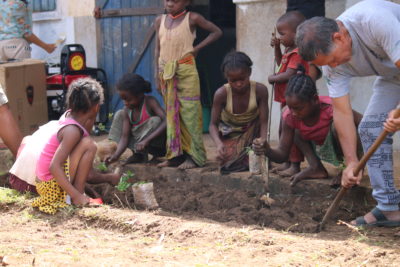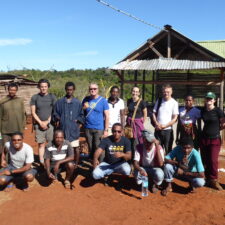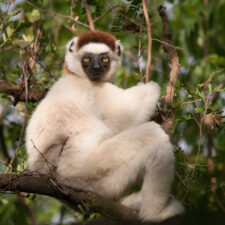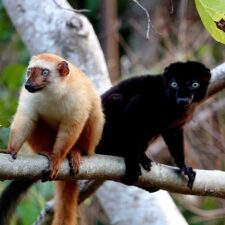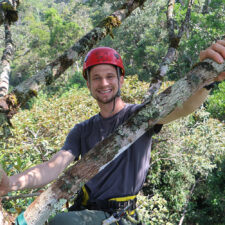The Lemur Conservation Network member of the month showcases our members’ work, and shares how we can help them in their battle for lemur conservation.
July 2019 is dedicated to the department of Anthropologie et Développement Durable (ADD) at the University of Antananarivo. In this blog post, we focus on this department’s graduate program and lemur research, and interview Dr RANAIVOARISOA Jean Freddy, who was the first Chief of this department.
Tell us more about the Department of Anthropobiology and Sustainable Development (Mention Anthropobiologie et Developpement Durable or MADD).
The department of Anthropobiology and Sustainable Development or “Mention Anthropobiologie et Developpement Durable (MADD)” is one of the study programs within the Department of Paleontology and Biological Anthropology (DPBA). Professor Berthe Rakotosaminana began this department in the Faculty of Sciences at the University of Antananarivo in 1975. The Department of Paleontology and Biological Anthropology is often considered the “Birthplace of Malagasy primatologists”.
After earlier launching the License (or Bachelor) Master and Doctorate degrees (LMD), the department of Anthropobiology and Sustainable Development – MADD was created in 2015. Dr RANAIVOARISOA Jean Freddy was the chief of this Department for the first three years. Since May 2019, Dr RAHARIVOLOLONA Brigitte Marie is the new Chief.
Many leading Malagasy scientists studied in this department, including Professor Jonah Ratsimbazafy, the renowned Malagasy lemur expert, as well as others who have gone on to create other departments at the University of Mahajanga and the University of Antsiranana.
What are the objectives of this Department?
The Department of Anthropobiology and Sustainable Development houses the most unique anthropology laboratory at the University of Madagascar that focuses on studying non-human primates. ADD’s main objectives are to provide training programs about primates, undertake research, and promote conservation efforts to future generations of Malagasy.
Our primary mission is to support and involve students through responding this question: What can you contribute to developing your country while studying within this department with this diploma?
Our secondary mission is about changing the behavior of local communities through building their relationships with students at the University. That is why we work in close collaboration with many associations, NGOs, and partners.
What are the main studies and research fields in the Department?
ADD is key to improving the abilities of Malagasy university students and helping them become leaders in the field of conservation.
The research fields are focused on the study of non-human and human Primates. Currently, there are three types of research fields considered as “laboratories” within the department: Laboratory of Primatology and Palaeontology of Vertebrates, Laboratory of Physical Anthropology and the Laboratory of Nutritional Anthropology. In addition to providing the study of scientific theory, we also provide applied training to the students so they will to be able to apply what they have learned at study sites.
This is important because conservation does not stop with protecting lemurs. It needs to encompass education, awareness raising, and helping local communities take ownership of and actively engage with conservation.
Who are the NGOs or institutes that collaborate with ADD?
We work closely in collaboration with many NGOs and institutes. The following organizations supported us by funding all our studies and trips: AEECL, IMPACT MADA, LEMURS PORTAL, GERP, BCM (Biodiversity Conservation Madagascar), Penn-State University USA, ONG SADABE and other donors who are alumni in that department. Some organizations such as Ministry of the Environment and the Sustainable Development (MEDD), Madagascar National Parks (MNP), MBP, MIKAJY NATIORA, DWCT, MWC, ICTE, CENTRE VALBIO, CONSERVATION INTERNATIONAL also work with us to facilitate field work.
The field school “Study Abroad” are entirely supported by the University of Western of England (UWE), Bristol Zoological Society UK, Northern Illinois University, Chicago USA, NGO SADABE, and the University of Florida, USA.
The following organizations support students by giving funds for their master and doctorate degrees: ONG SADABE, ICTE/MICET, MBP/OHDZA, GERP, BCM, University of Massachusetts USA, Penn-State University USA, Northern Illinois University USA, AMNH Chicago USA, Institute for Conservation Research, San Diego Zoo Global USA, University Hamburg Germany, SuLaMa project, The Aspinall Foundation.
Some foreign researchers also financially support the department. They do not represent their universities because of the administrative difficulty of setting up the Memorandum Of Understanding (MoU) between the department and universities.
How does the department help lemur conservation?
Study Abroad
We provide field training to students each September and October which are matched to World Lemur Festival events. There are also field schools called “study Abroad”.
- In Tsinjoarivo on April which is a joint collaboration with the University of the Western of England, Bristol UK (UWE) and NGO SADABE.
- In Tsinjoarivo on June, which is a joint collaboration with Northern Illinois University NIU in USA and NGO SADABE
- In Lokobe – Nosy Be on June which is a joint collaboration with Florida International University, USA
- 2017 field school in Tsinjoarivo.
World Lemur Festival
Each year, we celebrate the World Lemur Festival with AEECL association in Samahalaza, with Madagascar Biodiversity Partnership in Kianjavato, and with GERP in Manombo and Antananarivo. In 2019, we are also working with NGOs that are celebrating the Indri Festival.
How many students are in the department? How many of them graduated with masters and doctoral degrees?
Since the creation of the department, there are seven (07) classes with a total of 98 students. They are in the following classes:
| Class names | Number of students | Numbers of Bachelor and Master Students |
| MIARAMANDRESY (Fiampitana DPAB – ADD) | 15 | 13 (Master 2) |
| AINGAVAO | 16 | 03 (Master 2) |
| ZOARA MILOFO | 08 | In fieldwork for their Master’s degree |
| MAHENIKA | 13 | 13 (Master 1) |
| KINTANA MIRAY | 32 | 32 (Bachelor 3) |
| Tarika vaovao | 14 | 14(Bachelor 3) |
There are 14 students who are preparing their PhD (Doctorate) degree, and one who has earned his PhD.
- “Aingavao” Class
- “Kintana Miray” Class
- “Mahenika” Class
- “Zoara Milofo” Class
How can students apply to take courses in the Department ADD? What is the graduate program course?
Students who want to take courses within the department MADD have to follow-up the following graduate program course:
Bachelor 1 and Bachelor 2 degrees
After the first year in the Faculty of Sciences, students get their License 1 or Bachelor 1 degree. The second year, they apply to Fundamental courses in Biology to get their Bachelor 2 degree and choose the Syllabus Unit “Anthropology” in the fourth semester.
Bachelor 3 and Master 1 degrees
The course Anthropology, Biology and Evolution (ABE) allows students to get their Bachelor 3 and Master 1 degrees.
Master 2 Degree
To get their diploma Master 2, students have to choose one specialization within one of the three laboratories: Laboratory of Primatology and Palaeontology of Vertebrates, Laboratory of Physical Anthropology and the Laboratory of Nutritional Anthropology
PhD (Doctorate) degree
The PhD (Doctorate) program in the Department of ADD is included in the « Ecole doctorale Science de la Vie et de l`Environnement (ED SVE) » or “Doctoral School of Life and Environmental Science” and there are two specialties that are proposed to students:
- For those who chose the Laboratory of Primatology and Palaeontology of Vertebrates, Laboratory of Physical Anthropology for their Master 2, they will earn their PhD program with Doctoral school team of Zoology- Biological (EAD ZAB)
- For those who chose the Laboratory of Nutritional Anthropology they will earn their PhD program with Doctoral school team of Sciences, Food and Nutrition (EAD SAN).
What are your current needs?
Thanks to our partnership with organizations, we regularly receive funds and donations for research and conservation projects.
Currently, we would like to have funds for studies trip or field schools. Indeed, these field schools are important as we noticed that building relationships between students and local community has a huge positive impact on local community’s behavior. By having relationships with students from the University, parents want to send their children at elementary school and in high school and after that at the University. Our goal is to convince them to stop using traditional livelihoods such as logging forest and animal hunting.
We would like also to have funds for students who are preparing their master and doctoral degrees. And finally, we need funds to do the final ceremony graduation.
